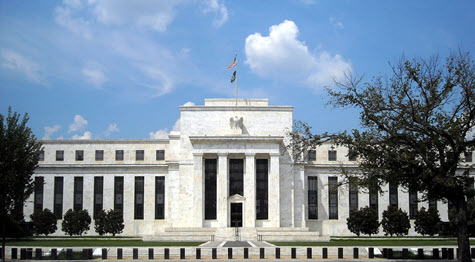
The Federal Reserve and central banks around the world conducted urgent large-scale interventions in capital markets this week to ease strains on economies and investors as the economic toll of the coronavirus expanded dramatically in the U.S.
- The Fed, the Bank of England, the European Central Bank and central banks in Asia pumped large amounts of liquidity into markets, cut benchmark interest rates and engaged in new bond-buying programs to help arrest the sudden drop in business activity and increase in unemployment rates. (Wall Street Journal, March 20 and Fed news releases)
- Fed Chairman Jay Powell said on Sunday, “We are prepared to use our full range of tools to support the flow of credit to households and businesses.” (Reuters, March 15 and Washington Post, March 20)
- Additionally, the central bank announced an effort to improve the liquidity of U.S. dollar swaps by increasing the frequency of 7-day maturity operations from weekly to daily – done in coordination with the Bank of Canada, the Bank of England, the Bank of Japan, the European Central Bank, and the Swiss National Bank (Fed Press release)
- The Fed also announced the creation of numerous lending facilities to backstop the credit market, including the:
- To support the issuance of more debt by states and cities in the coming weeks and months, the Fed today announced an expansion of its asset purchases to include municipal bonds – through the Money Market Mutual Fund Liquidity Facility. (Fed Press release).
- Market interventions by other nations this week included The European Central Bank (ECB), which on March 18 launched an €750 billion ($820 billion) emergency private and public bond program. Today, Christine Lagarde, President of the ECB, addressed the program’s specifics and other actions the ECB will take. “We are fully prepared to increase the size of our asset purchase programmes and adjust their composition, by as much as necessary and for as long as needed. We will explore all options and all contingencies to support the economy through this shock,” Lagarde said. (ECB Blog, March 20)
Hotels and Malls Hit By Coronavirus Economic Shocks
The economic shockwaves of the coronavirus pandemic are quickly affecting operations of major U.S. hotel chains and other aspects of the commercial real estate industry.
- CEOs of Marriott, Hilton, Hyatt and other chains met Tuesday with President Donald Trump to describe the virus’ impact.
- Former Roundtable Chairman and Hilton Worldwide CEO Chris Nassetta told the president that Hilton plans to temporarily suspend operations at most of its hotels located in major U.S. cities – and that he expects global occupancy rates to fall to as low as 10%. (View meeting of Hotel CEOs and President Trump, with transcript, on C-Span)
- Nassetta added that in Hilton’s 100-year history, it has never closed a hotel except for remodeling or demolition. “I’ve been doing this for 35 years. Never seen anything like it,” Nassetta told Trump.
- At the meeting’s conclusion, United States Travel Association President Roger Dow told President Trump, “I would like to put together what everyone has said here. The numbers are $355 billion is what we’re going to lose, 4.6 million employees will be out of work, and we’re predicting unemployment will go to 6.3 percent. So, it’s now — it’s serious.” (C-Span video and transcript)
- Another CRE sector deeply affected by the outbreak is retail. On March 18, Simon Property Group announced it would temporarily close all of its retail properties, including Malls, Premium Outlets and Mills in the U.S until March 28 to address the spread of COVID-19. (Simon statement)
The Roundtable is in contact with its membership to assess the widespread repercussions of the crisis and will report its findings to policymakers to help formulate targeted policies to combat the pandemic.
# # #
